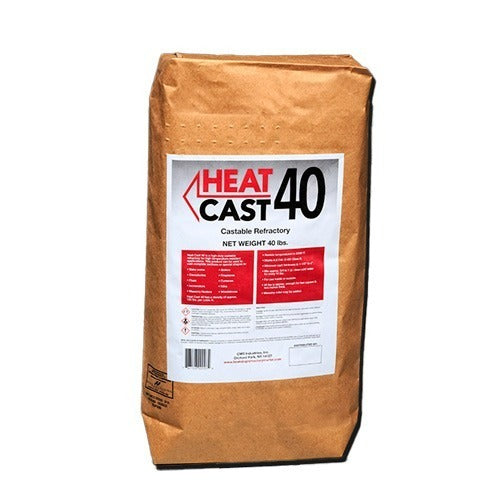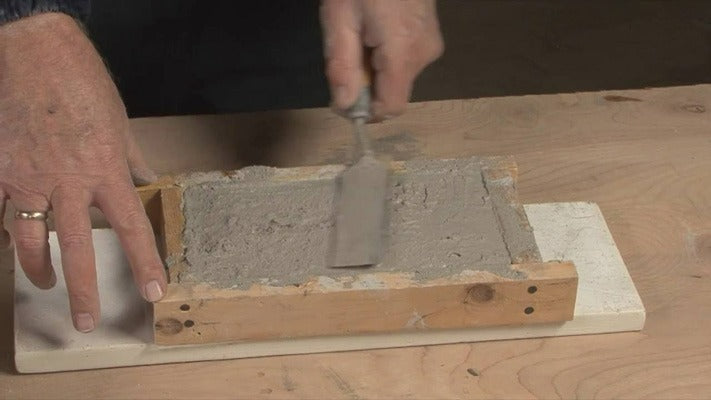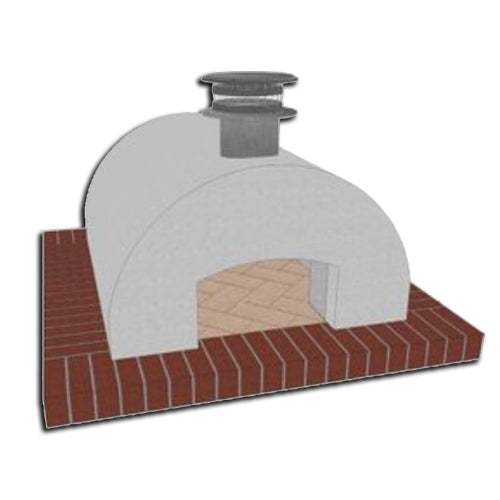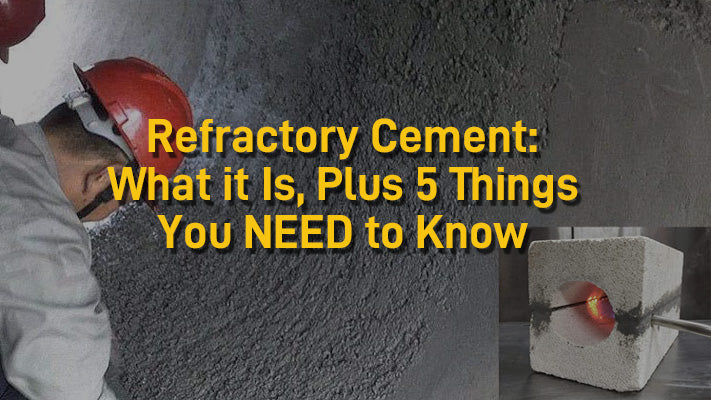
Monolithic Refractory Cement Castable 40lb bag
Heat Cast 40 is the premier choice for monolithic refractory cement, tailored for high-heat environments. This versatile product can be molded into any custom shape required for various high-temperature applications, including boilers, furnaces, woodstoves, fireplace hearths, forges, and more.Key Features and Applications
- Custom Molding: Heat Cast 40 is designed to be poured into a form to create custom-shaped bricks, making it ideal for any specific design needs.
- High-Temperature Resistance: With the ability to withstand temperatures exceeding 2,000 degrees Fahrenheit, this refractory cement is perfect for demanding applications such as pizza ovens, blacksmithing, forges, and crematoriums.
- Flexible Application: The cement can be cast or toweled in place, depending on the requirements of your project.
Coverage and Application
-
Coverage: A 40-pound bag of dry mix covers approximately 2 square feet at a thickness of 2 inches.
- For accurate estimation, 20 pounds (1/2 bag) of mix will cover 1 square foot at 2 inches thick.
- Thickness Requirements: To maintain structural integrity, Heat Cast 40 should be cast to a minimum thickness of 1.5 inches.
Specifications
ASTM C-401 Class B: Meets rigorous standards for high-heat refractory materials.
Non-Water Soluble: Remains durable and intact during service, even in high-moisture environments.
Typical applications for Heat Cast 40: Pizza ovens, Blacksmithing, Forges, Crematoriums, Fireplaces, Woodstoves, Boilers, Furnaces, Kilns, Flue Systems, and Masonry Heaters.
Any place where you need to pour a refractory pad at least 1.5 inches thick.
FREE SHIPPING
Questions about your project? Contact our customer support today
(800) 567-5358
View the entire line of Heat Stop Refractory Products Here >
Heat Cast 40 lb. Bags sold individually










